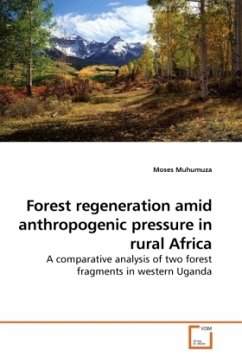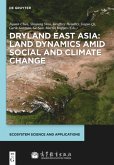There is very little untouched forest left in the world & almost every corner of the planet is influenced by human activities. Africans in sub-Saharan Africa depend on forest products to a greater extent than most other parts of the world. Forest resources are fundamental to human wellbeing for survival, employment, export, and economic gain. This book presents a case study of how African rural people influence forest degradation and impede forest regeneration. Forest inhabitants and communities living adjacent to forests are hunters and wild plant resource gatherers. Evidence put forward shows that the rate of harvest of forest resources increases by much faster than human population growth. Amid scarcity of resources local communities eke the remnants of degraded forest fragments for lack of alternative means of survival. Increase in human populations with greater consumerism means that we have to expect further loss of forest cover and biodiversity. Forests will not maintain rich biodiversity if the surrounding land-use does not permit the normal functioning of the ecosystem. We should think beyond the immediate causes of forest biodiversity loss, and consider the root causes.








